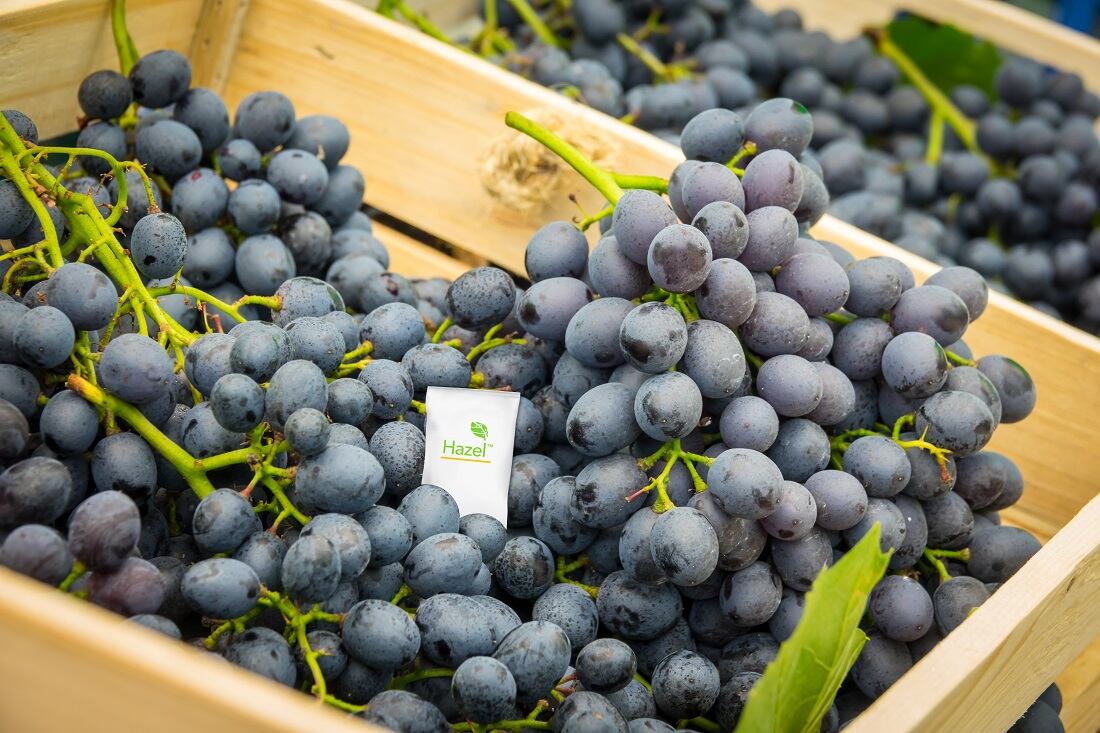The USDA estimates that between 30% to 40% of the total food supply goes to waste, amounting to 133 billion pounds and $161bn worth of wasted food annually based on USDA’s Economic Research Service 2010 estimates. In 2019, the US generated 80.6 million tons of surplus food accounting for 35% of total food production in 2019, according to figures from the non-profit organization ReFED.
However, these figures often cited by the industry and media outlets aren't addressing the entire scope of the industry's food waste issue, said Mouat.
"They actually don’t really capture the waste of the total production process," Mouat told FoodNavigator-USA.
An overlooked area, he claimed, is in-farm field waste, which can be anything from fruits and vegetables growers that have struggled to find a buyer, to produce which has already ripened and is therefore too risky to ship thousands of miles where it could rot during transit.
"It’s a huge category of farm waste. It is one that we’re actually under measuring right now according to a number of recent academic reports," Mouat said, adding that Hazel Technologies is addressing this area through its several technology platforms including its 1-MCP ethylene controlling technology, which conditions the storage atmosphere of produce to reduce respiration rates and increase resistance to ethylene (a chemical compound that induces the ripening process), thereby slowing down the aging process of many fruits and vegetables.
"Giving farmers, growers, and packers a technology that allows them to double their radius or to sell into a market with improved quality, so they can actually make a profit on their product is the only way to incentive those farmers to actually harvest the food that they grew and to sell it," said Mouat.
"It’s an incredibly fundamental method of waste reduction that addresses a major problem in not just the food waste sector but how we measure and manage the food waste sector as well."
Hazel Technologies: Where it began
While pursuing his PhD at Northwestern University and becoming a fellow of the Institute for Sustainability and Energy at Northwestern (ISEN), Mouat was tasked with crafting a business plan through the university's Innovation and New Ventures accelerator program.
Through the program he met the other future co-founders of Hazel Technologies, Adam Presler and Patrick Flynn.

"We sat down and said, we don’t really have any appreciable business skills, and we don’t know what we can contribute to a business except for technology," recounted Mouat who said that at the time they were meeting, the USDA had issued its first ever mandate of cutting food waste by 50% by 2030 in accordance with the United Nations' Sustainable Development Goals.
Putting their backgrounds in biochemistry and materials and synthetics chemistry to use, they built their business around the idea of manipulating the natural aging processes of fresh foods through small molecule signaling.
"Those are molecules that in the industrial process we can manipulate. We already know how to control those chemicals in very interesting ways and not only that, but there’s a whole field of research on how to use natural materials and more sustainable scalable engineering to control those molecule processes," said Mouat, noting that traditional methods for controlling the aging process of fresh foods within the supply chain have historically been through cold chain logistics and air flow management, which are not only costly but energy-intensive solutions.
"I said, what if we combine those two things? We could have a technology platform that allows us to manipulate the aging process itself in perishable food through the controlling of these small molecule atmospheric signaling compounds."
The technology
After incorporating as a company and receiving its first round of seed funding from the USDA (the company has raised $87.8m to date), Hazel Technologies came out with its ethylene management technology platform and its most widely-used product: 1-MCP in-bin sachets (roughly the size of a sugar packet) which can control the aging process of a wide variety of specialty crops from orchard fruits to romaine lettuce and tropical fruits.
"That sachet is a product that’s meant to target a master case of produce of to about 60 lbs," said Mouat, explaining that sachet is activated by the atmosphere triggering a time release vapor phase of its engineered ethylene inhibitor.
"In the presence of that concentration of this ethylene inhibitor, the produce then responds physiologically to that atmosphere much in the way it would respond to ethylene itself. It allows us to take control of the metabolic process of that fruit or vegetable. We can do things like slow the breathing rate, slow water loss of the produce and ultimately retain the key quality characteristics that are necessary for that fruit or vegetable to be acceptable upon point of delivery," said Mouat, adding that the ethylene management products can double or triple the shelf life of many perishable fruits and vegetables.
"We’re not absorbing, we’re not diffusing it or controlling ethylene in the atmosphere, we’re not doing any chemistry with ethylene itself. We’re introducing a compound to the atmosphere that allows us to change how the food physically responds to its exterior environment and that in turn it allows us to control the rate at which it ages," he explained.
'We have more solutions for more problems than anybody else'
Acknowledging that some other similar technologies or solutions to preserving fresh foods already exist on the market today such as AgroFresh's 1-MCP SmartFresh product or Apeel's 'invisible plant-based skin', Mouat claimed that Hazel Technologies' approaches are applicable to the widest range of perishable goods.
"Not everything on the planet needs a coating to solve its shelf life challenges and that’s why we have to stay adaptable with the chemistry that we use. We can use the platform nature of our technology to solve more than one challenge of shelf life. All of that falls under Hazel and that’s why we have more solutions for more problems than anybody else.
"We have three principle chemistry platforms: One is ethylene inhibition, one is antimicrobial, and the other is anti-sprouting. The reason we have those specific chemistry branches is that those represent three very specific mechanisms that address major market problems in different areas of perishable food management," said Mouat.
"A notable category that is not relevant in the ethylene management space is berries," he said, which the company addresses with its antimicrobial technology platform.
"We developed another chemistry platform and that was the antimicrobial platform because berries absolutely have a huge shelf life challenge."
A broader food waste solution
In terms of future business objectives, Mouat added that while the company has traditionally worked on the supplier side of the food industry with growers and packers, it is also growing stronger relationships with retailers who are dealing with a number of produce-related issues on a daily basis.
"When we’re working with a retailer, they’re managing anywhere from 70-100 SKUs and those 100 SKUs are coming from ten different countries and 50 different suppliers," said Mouat.
"We’re actually trying to create a new category of opportunity by being the technology bridge between the growers, packers, distributors, and retailers."




